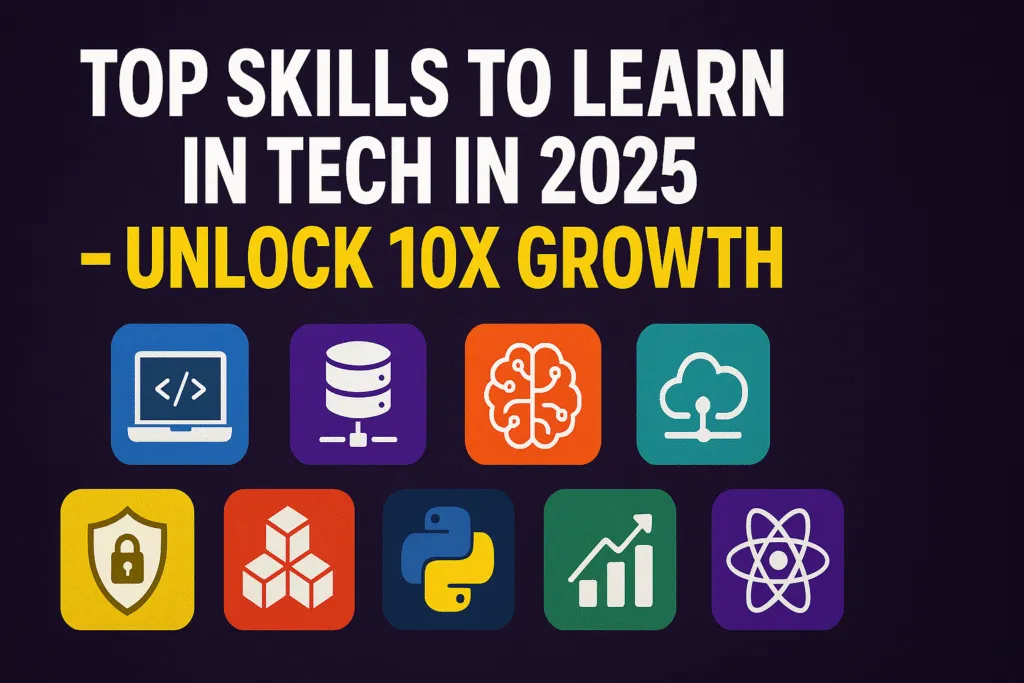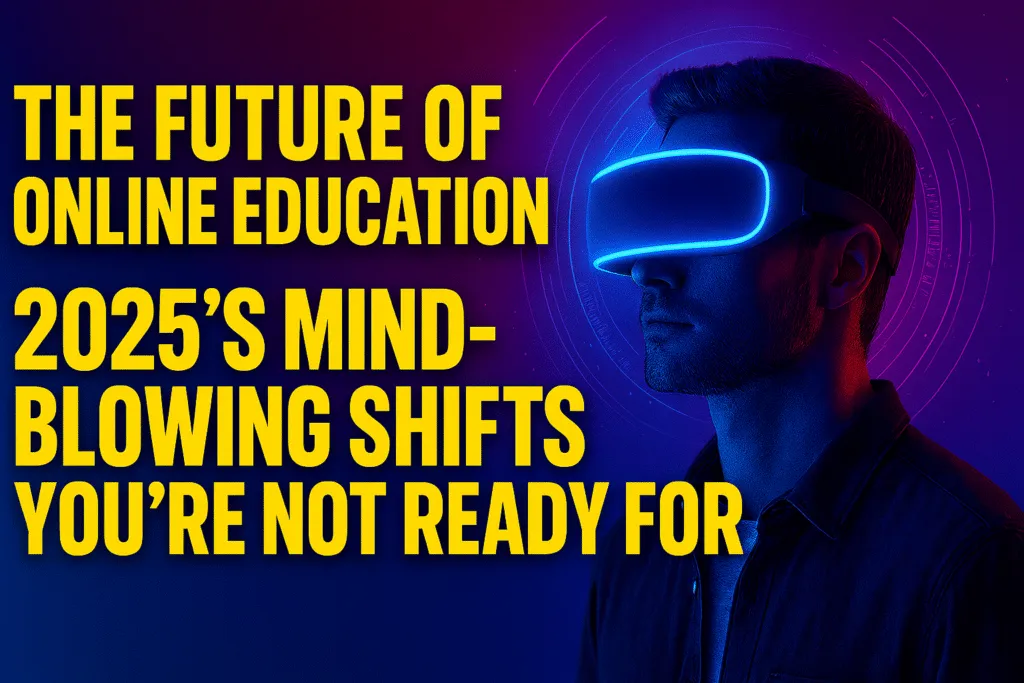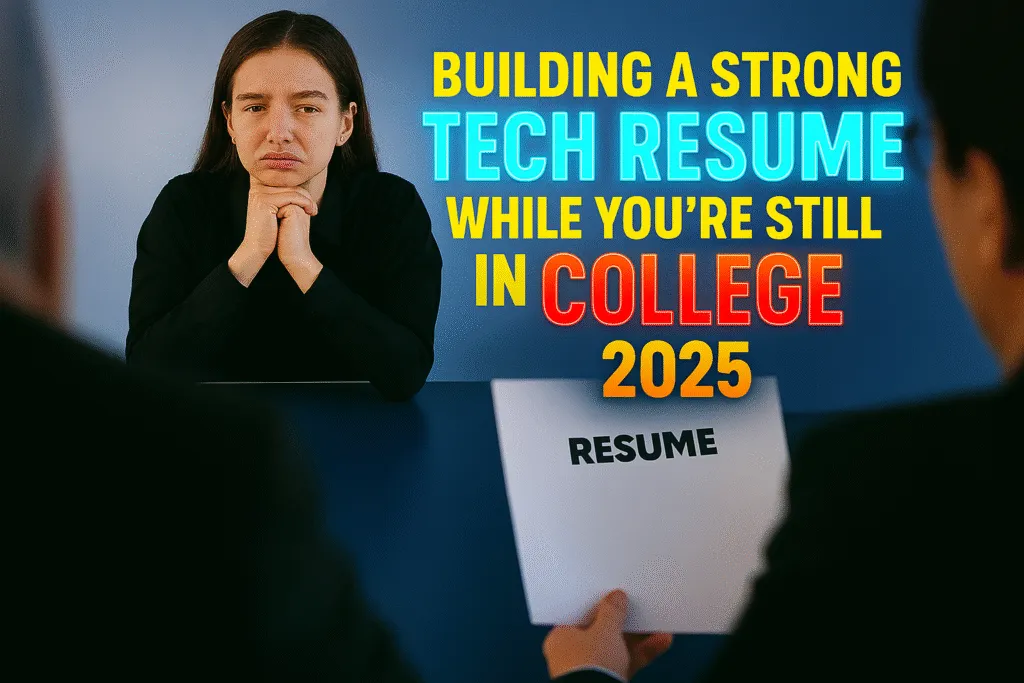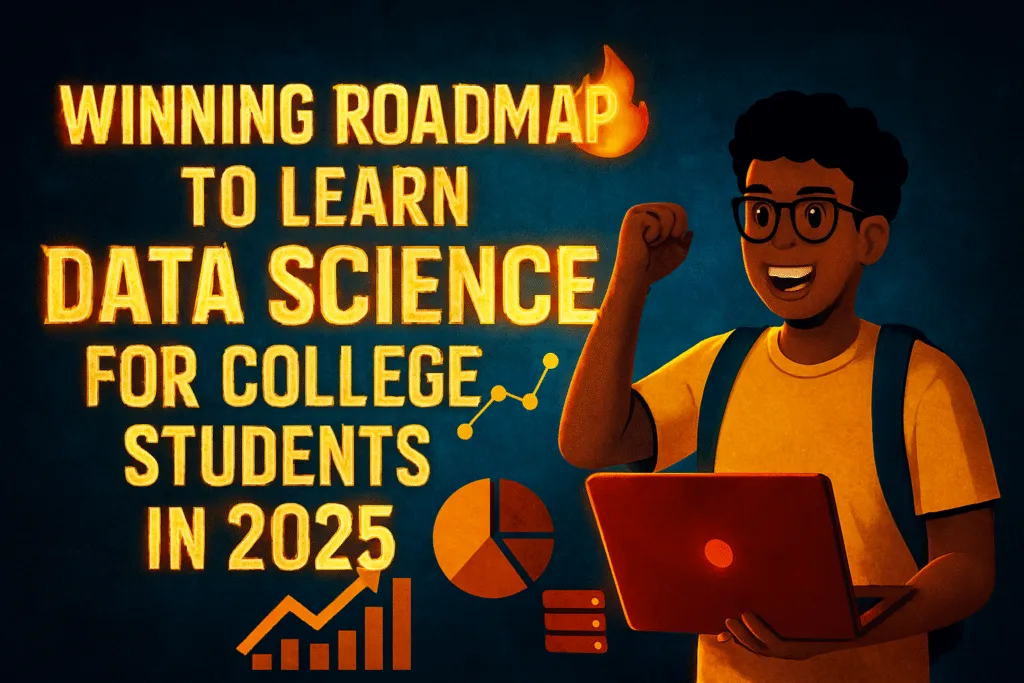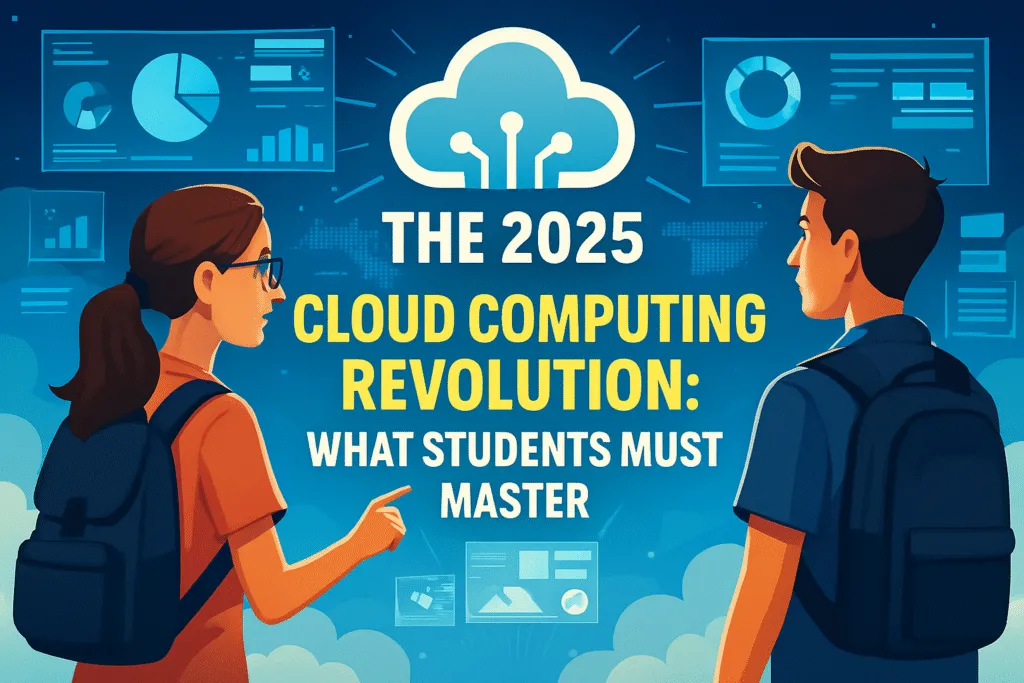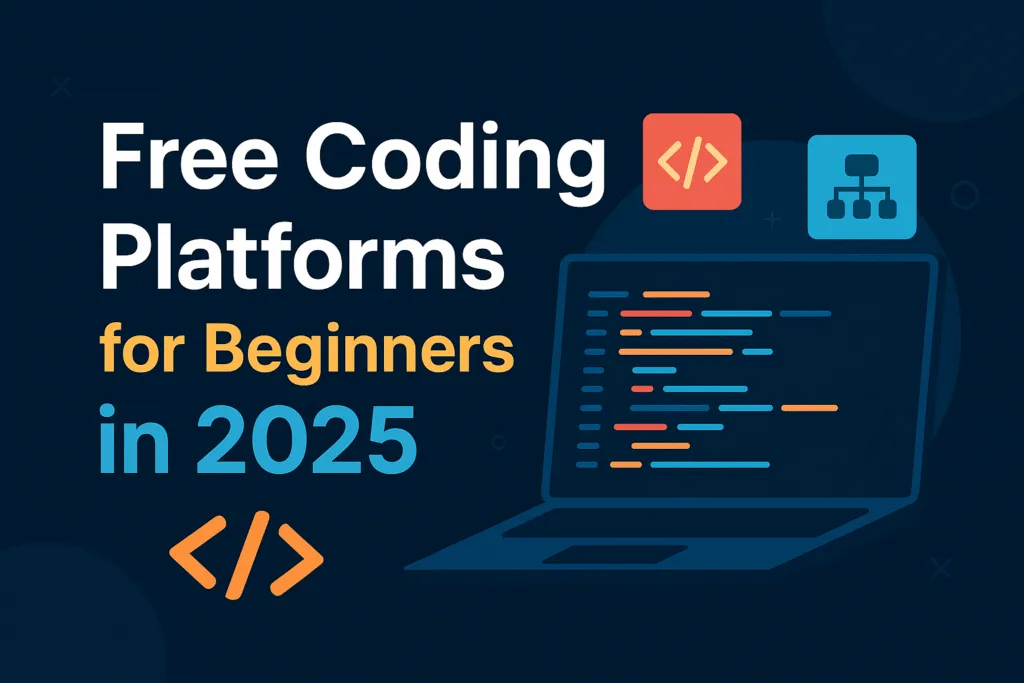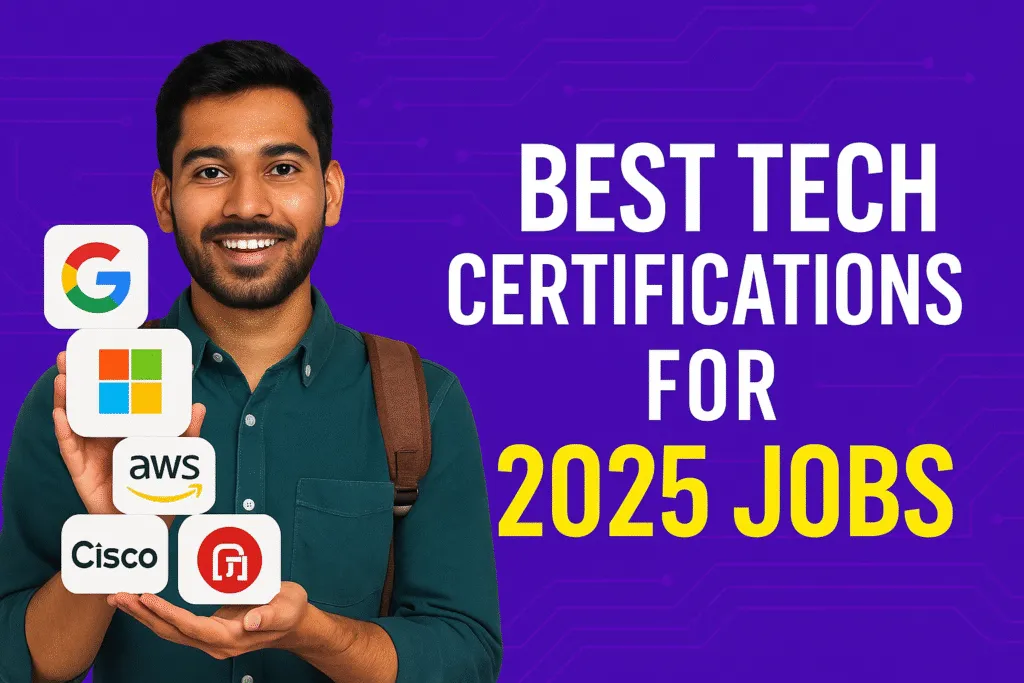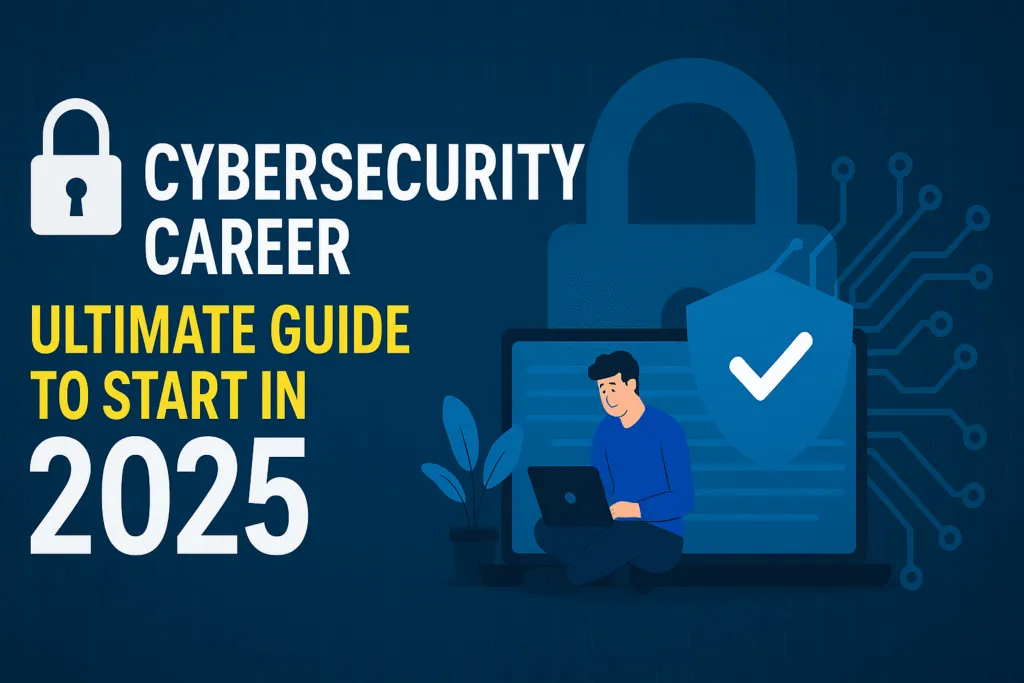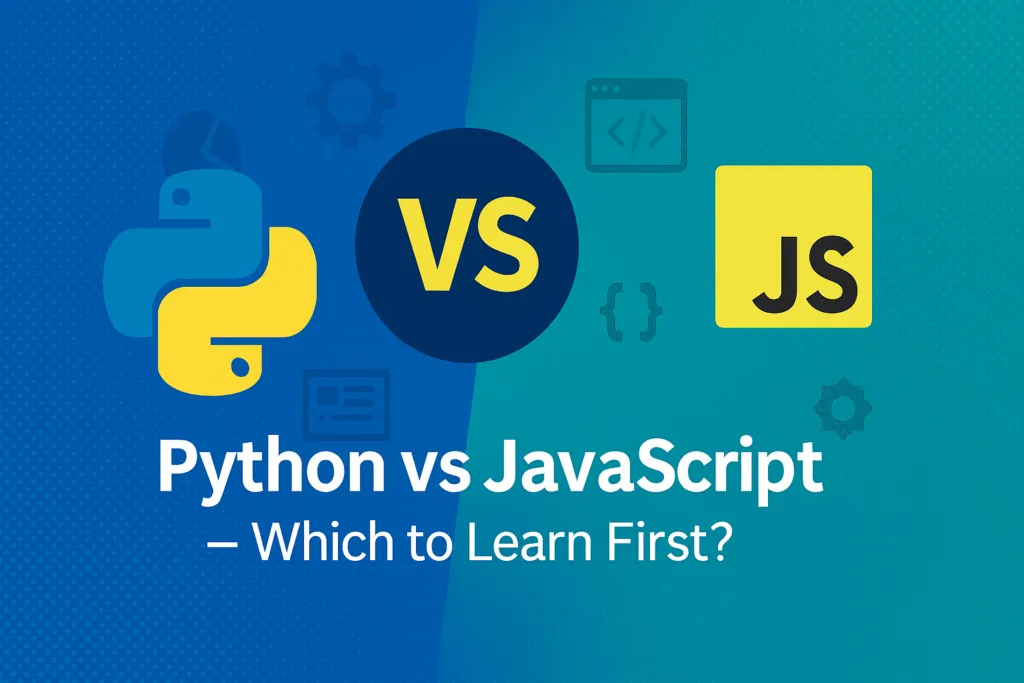Introduction: Why 2025 Is a Critical Year for Tech Skills
The tech world never stops evolving, but 2025 is shaping up to be a turning point. Emerging technologies like AI, blockchain, quantum computing, and spatial computing are not just trends anymore—they’re becoming the foundation of how businesses operate and how people interact with digital tools. That’s why identifying the top skills to learn in 2025 is more important than ever for anyone in the tech space.
Tech roles are no longer limited to traditional IT or software development. Today, every industry—from healthcare and finance to education and entertainment—is integrating technology in ways we couldn’t have imagined a few years ago. This means the demand for skilled professionals who can keep up with this pace is skyrocketing. But not just any skills will do. You need future-proof, high-impact abilities that align with where the world is heading.
Whether you’re just starting out or looking to level up your career, understanding which tech skills matter most in 2025 can give you a serious edge. Employers are prioritizing candidates who not only have technical knowledge but can also adapt quickly and solve real-world problems using innovative tools.
This blog will break down the top skills to learn in 2025 based on market demand, industry relevance, and long-term growth potential. These aren’t just buzzwords—they’re practical, actionable areas of expertise that can help you future-proof your career in a tech-driven world. If you’re serious about growth, now’s the time to stop guessing and start learning.
Artificial Intelligence & Machine Learning
Artificial Intelligence (AI) and Machine Learning (ML) continue to dominate the tech space, and in 2025, they are more than just buzzwords—they’re core to innovation. From personalized recommendations on streaming platforms to self-driving cars and advanced healthcare diagnostics, AI and ML are powering the next generation of smart technology.
If you’re exploring the top skills to learn this year, AI and ML should be at the top of your list. Companies across every industry are investing heavily in intelligent systems that can analyze data, automate decisions, and improve efficiency. As a result, professionals with hands-on experience in machine learning algorithms, deep learning models, natural language processing (NLP), and AI frameworks like TensorFlow or PyTorch are in high demand.
But AI isn’t just for PhDs and data scientists anymore. The field is becoming more accessible, with beginner-friendly tools and online platforms making it easier than ever to get started. Learning AI and ML now opens doors to roles like AI engineer, data scientist, ML developer, and even product manager in AI-driven projects.
Understanding how machines learn and make decisions is not just a technical advantage—it’s becoming a strategic one. In a world where data is the new oil, those who can train machines to extract value from it will shape the future.
If you’re serious about future-proofing your tech career, diving into AI and ML is not just a smart move—it’s a necessary one. Among all the top skills to learn in 2025, this is the one driving the most transformation, opportunity, and disruption.
Cybersecurity and Ethical Hacking
In an increasingly connected world, where data breaches and digital threats are becoming more common, cybersecurity has become one of the most vital tech domains. As we step into 2025, protecting digital infrastructure isn’t just the job of IT departments—it’s a business-wide priority. That’s why cybersecurity and ethical hacking have firmly earned their place among the top skills to learn this year.
From large corporations to startups, organizations are actively seeking professionals who can identify vulnerabilities before malicious hackers do. Ethical hackers, also known as white-hat hackers, are trained to think like attackers—but with the goal of strengthening security systems, not breaking them. Their work helps prevent costly breaches, safeguard customer data, and maintain trust.
In 2025, the demand for ethical hackers and cybersecurity experts is expected to grow even more due to the rise of AI-powered threats, sophisticated ransomware attacks, and the expansion of remote work environments. Governments and private sectors alike are ramping up efforts to secure cloud infrastructure, IoT devices, and critical networks.
To get started, aspiring professionals can explore certifications like CEH (Certified Ethical Hacker), CompTIA Security+, or CISSP. Learning how to conduct penetration testing, understand network security, and use tools like Wireshark, Metasploit, or Burp Suite can set you apart in the job market.
Cybersecurity isn’t just a technical skill—it’s a mindset. It’s about anticipating threats, acting proactively, and constantly staying one step ahead. If you’re looking for top skills to learn that combine challenge, relevance, and real-world impact, ethical hacking offers all that and more.
In a digital-first future, being able to protect systems and data is not just a bonus—it’s a necessity.
Cloud Computing (AWS, Azure, GCP)
Cloud computing has completely transformed how modern businesses build, deploy, and scale their applications. As we move deeper into 2025, it’s clear that cloud expertise is no longer optional—it’s essential. For anyone exploring the top skills to learn this year, mastering cloud platforms like AWS, Microsoft Azure, or Google Cloud Platform (GCP) is a game-changing move.
The global shift toward remote work, SaaS products, and on-demand infrastructure has made cloud computing the backbone of digital transformation. Companies of all sizes are migrating their operations to the cloud to save costs, improve performance, and gain flexibility. This means the demand for cloud professionals—architects, engineers, DevOps specialists, and security experts—is at an all-time high.
Whether you’re working on web apps, mobile backends, AI models, or big data pipelines, knowing how to use cloud platforms effectively gives you a major advantage. Skills like setting up virtual machines, managing storage, automating deployments, configuring cloud security, and optimizing for cost-efficiency are highly valued in the job market.
AWS remains the industry leader, but Azure and GCP are quickly catching up with specialized tools for enterprise, AI, and machine learning use cases. Most companies today rely on a multi-cloud strategy, making cross-platform skills even more valuable.
Fortunately, learning cloud computing has become more accessible than ever. Many platforms offer free tiers, sandbox environments, and hands-on labs to help you practice. Certifications such as AWS Certified Solutions Architect, Microsoft Azure Fundamentals, or Google Associate Cloud Engineer can also boost your credibility.
Among the top skills to learn in 2025, cloud computing offers unmatched career flexibility, salary potential, and future readiness. If you’re serious about staying competitive, it’s time to get your head—and hands—in the cloud.
Data Science & Analytics
In today’s digital world, data is more than just numbers—it’s a powerful asset that drives business decisions, innovation, and competitive advantage. As we enter 2025, data science and analytics remain some of the top skills to learn for anyone aiming to thrive in tech.
Every app we use, every transaction we make, and every click we take generates valuable data. But without the right skills to analyze and interpret it, that data is just noise. Data science turns raw data into meaningful insights, while analytics helps organizations make smarter, faster, and more accurate decisions.
From finance and healthcare to e-commerce and entertainment, companies are seeking professionals who can work with tools like Python, SQL, R, Excel, and Tableau to process, visualize, and model data. Understanding concepts such as statistical analysis, data cleaning, predictive modeling, and machine learning gives you a major edge in today’s data-driven economy.
The field isn’t limited to data scientists either. Data analysts, business intelligence specialists, and even marketers benefit from data literacy. As more teams rely on insights to shape their strategies, having the ability to extract and communicate data-driven findings is an invaluable skill.
One of the best parts about learning data science is that it’s highly accessible. Whether you’re a beginner or switching careers, there are countless free and paid resources, bootcamps, and certification programs to help you get started.
If you’re looking for top skills to learn that are in high demand, versatile across industries, and packed with long-term potential, data science and analytics are clear front-runners. In a world overflowing with information, those who can make sense of it will always lead the way.
DevOps & Automation
In 2025, speed, efficiency, and reliability are everything—and that’s exactly what DevOps and automation bring to the table. As companies strive to ship better software faster, the line between development and operations continues to blur. That’s why DevOps has solidified its place among the top skills to learn this year.
DevOps is more than just a workflow; it’s a culture of collaboration, continuous improvement, and automation. It enables developers and IT teams to work together seamlessly, automate repetitive tasks, and streamline the entire software development lifecycle—from code to deployment to monitoring.
Automation sits at the heart of DevOps. Whether it’s setting up CI/CD pipelines, managing infrastructure with code, or automating testing and deployment processes, the ability to build and maintain efficient, error-free systems is a must-have skill. Tools like Docker, Kubernetes, Jenkins, Terraform, and GitHub Actions have become essential in modern development environments.
Learning DevOps doesn’t just improve your technical abilities—it also enhances your understanding of how software works in real-world, production-level systems. It teaches resilience, scalability, and adaptability—qualities every tech professional needs in 2025.
With the rise of cloud-native development, microservices, and AI-powered automation, companies are prioritizing professionals who can build systems that scale automatically and recover gracefully. These aren’t just nice-to-haves—they’re business-critical capabilities.
If you’re looking to stand out in a crowded tech job market, DevOps and automation offer an ideal blend of practical application, industry demand, and future growth. Among the top skills to learn, this one empowers you to build faster, smarter, and more reliably than ever before.
Blockchain & Web3 Technologies
Blockchain is no longer just about cryptocurrency. In 2025, it’s evolving into a core pillar of decentralized digital infrastructure, making Blockchain and Web3 technologies some of the most forward-looking and impactful top skills to learn today.
At its core, blockchain offers a secure, transparent, and tamper-proof way to store data and verify transactions. But it goes far beyond Bitcoin or Ethereum. From decentralized finance (DeFi) platforms to supply chain management, digital identity, gaming, and even voting systems—blockchain is enabling new models of trustless interaction across industries.
Web3, often called the next version of the internet, is powered by these technologies. It aims to give users control over their data, identity, and digital assets. Learning how to build and interact with decentralized apps (dApps), smart contracts, and blockchain networks positions you at the forefront of the next major internet shift.
Popular tools and platforms in this space include Solidity for smart contract development, Ethereum and Polygon for dApp deployment, and tools like MetaMask, IPFS, and Chainlink for integration and infrastructure. Understanding tokenomics, DAOs (Decentralized Autonomous Organizations), and NFTs (Non-Fungible Tokens) is also increasingly relevant in the Web3 space.
Even though the crypto market may fluctuate, the demand for blockchain-savvy developers, product managers, and system architects continues to grow steadily. Companies, governments, and startups are all exploring how decentralized solutions can make systems more secure, transparent, and efficient.
Among all the top skills to learn in 2025, blockchain and Web3 stand out for their disruptive potential and long-term significance. If you want to be part of the future of finance, identity, and ownership, now is the perfect time to dive in.
UI/UX Design & Human-Centered Tech
In today’s digital world, building great technology isn’t just about functionality—it’s about how people experience it. That’s where UI/UX design and human-centered tech come into play. In 2025, crafting intuitive, beautiful, and accessible digital experiences is more important than ever, making this one of the top skills to learn for tech professionals and creatives alike.
User Interface (UI) design focuses on the visual layout—the buttons, colors, typography, and flow—while User Experience (UX) is about how the product feels and functions from the user’s perspective. Together, they create the foundation for digital products that are not only usable but genuinely enjoyable.
From mobile apps to websites and enterprise software, companies now understand that good design directly impacts customer satisfaction, retention, and even revenue. Whether you’re a developer looking to build better apps or a designer aiming to shape meaningful experiences, UI/UX skills are a huge career booster.
Tools like Figma, Adobe XD, and Sketch have made the design process more collaborative and efficient. Learning design systems, prototyping, usability testing, and accessibility standards can help you build interfaces that work for everyone—regardless of ability or device.
What makes this field stand out is its human-centered approach. It’s not just about pixels or layouts—it’s about empathy. Understanding your users’ needs, behaviors, and pain points leads to smarter, more impactful solutions.
As technology becomes more complex, the demand for simplicity, clarity, and thoughtful design continues to rise. That’s why UI/UX design isn’t just for designers anymore—it’s a must-have mindset across all tech roles.
If you’re exploring the top skills to learn in 2025, UI/UX design offers a unique blend of creativity, psychology, and problem-solving that keeps you deeply connected to the people you’re building for.
Software Development (Full-Stack & Mobile)
At the heart of every digital product—whether it’s a website, app, or enterprise system—is software development. In 2025, full-stack and mobile development remain essential pillars of the tech industry, making them among the most practical and in-demand top skills to learn.
Full-stack developers are the all-rounders of the development world. They can build both the front end (what users see) and the back end (how it all works behind the scenes). This versatility makes them incredibly valuable to startups, agencies, and enterprises alike. Technologies like React, Node.js, Next.js, and MongoDB continue to dominate modern web development stacks.
On the other hand, mobile development is booming thanks to the ever-growing reliance on smartphones. Whether it’s building native apps with Swift for iOS or Kotlin for Android, or using cross-platform tools like Flutter and React Native, mobile developers are shaping the way people interact with digital services in real-time, on the go.
Learning software development in 2025 isn’t just about knowing how to write code. It’s about building scalable, secure, and user-friendly applications. It also means understanding version control (Git), working with APIs, writing clean code, and staying current with the latest frameworks and development trends.
What makes software development such a powerful career skill is its flexibility. You can freelance, work remotely, launch your own products, or contribute to open-source projects that reach millions. The possibilities are wide open.
As one of the top skills to learn, software development continues to evolve, but its core value remains the same: turning ideas into real, functional technology. Whether you’re building the next big app or improving existing platforms, your skills as a developer will always be in demand.
Quantum Computing Fundamentals
Quantum computing may sound like science fiction, but in 2025, it’s quickly becoming a real and exciting frontier in technology. While still in its early stages, learning the fundamentals of quantum computing now can place you ahead of the curve, making it one of the smartest top skills to learn for future-focused tech professionals.
Unlike classical computers that process information in binary (0s and 1s), quantum computers use qubits, which can exist in multiple states at once. This allows them to solve certain complex problems—like simulations, cryptography, and optimization—much faster than traditional systems ever could.
Tech giants like IBM, Google, and Microsoft are already building quantum platforms and offering cloud-based tools for developers and researchers to experiment with. Open-source libraries like Qiskit, Cirq, and Pennylane have made it possible for beginners to get hands-on experience without needing access to expensive hardware.
Learning quantum computing fundamentals involves understanding core concepts such as superposition, entanglement, quantum gates, and quantum algorithms. While it does require a bit of mathematical and scientific background, many educational platforms now offer beginner-friendly courses that break it down in simple, visual ways.
Even if you’re not planning to become a quantum physicist, having a basic grasp of quantum principles can give you an edge in fields like cybersecurity, AI, and advanced data science. As quantum advances, it will likely create new roles and reshape how existing technologies function.
Among the top skills to learn in 2025, quantum computing stands out not just for its complexity—but for its potential. If you’re passionate about exploring the future before it becomes mainstream, diving into quantum fundamentals is a bold and valuable move.
AR/VR and Spatial Computing
The lines between the digital and physical worlds are blurring, and AR/VR and spatial computing are at the forefront of that transformation. In 2025, these immersive technologies are no longer limited to gaming—they’re revolutionizing education, healthcare, retail, architecture, and more. That’s why they’re quickly becoming some of the most exciting top skills to learn this year.
Augmented Reality (AR) overlays digital elements onto the real world, while Virtual Reality (VR) creates fully immersive digital environments. Spatial computing takes this even further, allowing technology to understand and interact with the physical space around us. Together, they power everything from remote collaboration tools and virtual training to mixed-reality shopping experiences and virtual tourism.
Learning to build for AR/VR involves mastering tools like Unity, Unreal Engine, ARKit, and WebXR. Designers and developers alike are exploring 3D modeling, motion tracking, and real-time interaction techniques to create experiences that feel intuitive and lifelike. As hardware becomes more accessible—thanks to devices like Apple Vision Pro, Meta Quest, and AR-enabled smartphones—the demand for immersive content is rising fast.
What makes AR/VR and spatial computing stand out is the creativity they unlock. You’re not just building apps; you’re crafting experiences that users can feel, move through, and interact with in three dimensions.
If you’re looking for top skills to learn that blend technical skill with creativity, AR/VR and spatial computing offer a future-proof path. Whether you want to design virtual worlds, build interactive simulations, or redefine how people work and play, these technologies are opening doors that didn’t exist just a few years ago.
Digital Marketing for Tech Professionals
In a tech-driven world, knowing how to build products is powerful—but knowing how to promote them is essential. That’s why digital marketing for tech professionals is rising fast on the list of top skills to learn in 2025. Whether you’re a developer, designer, or entrepreneur, understanding how to get your work in front of the right audience can be a game-changer.
Digital marketing isn’t just about ads or social media. It’s a strategic mix of SEO, content marketing, email campaigns, analytics, and growth hacking that helps products gain visibility and traction. For tech professionals, it’s the bridge between building something great and making sure it gets noticed.
Imagine launching a SaaS tool, app, or portfolio site—if you don’t understand basic SEO, user acquisition strategies, or how to create compelling content, your hard work might go unseen. Learning how to leverage platforms like Google Search, LinkedIn, YouTube, or even GitHub from a marketing perspective can significantly increase your impact.
Tech professionals who understand digital marketing are more self-sufficient and better collaborators. Whether you’re part of a startup team or working solo, being able to write effective landing pages, analyze traffic data, and run conversion tests makes you far more valuable.
Plus, digital marketing is a skill that scales with everything you do. It supports your side projects, freelancing gigs, open-source work, and personal brand. It empowers you to grow a community around your ideas and turn visitors into users, customers, or collaborators.
If you’re aiming to build a sustainable and visible career in tech, digital marketing is one of the smartest top skills to learn. In a world full of creators, the ones who also know how to connect and convert will always stand out.
Tech Leadership & Soft Skills
As technology continues to advance rapidly, one truth remains clear: technical knowledge alone isn’t enough. In 2025, tech leadership and soft skills are among the most underrated yet essential top skills to learn—especially for those who want to grow beyond individual contributor roles.
Leadership in tech isn’t just about managing a team—it’s about setting vision, driving collaboration, solving problems under pressure, and guiding innovation. Whether you’re leading a project, mentoring junior developers, or stepping into a managerial role, strong leadership skills can elevate your entire team’s performance.
Equally important are soft skills like communication, emotional intelligence, adaptability, and conflict resolution. These are the human elements that fuel productivity and trust in fast-paced, often remote tech environments. For instance, being able to clearly explain a technical concept to a non-technical stakeholder is a highly valuable asset. So is the ability to navigate team dynamics or make thoughtful decisions when things don’t go as planned.
In an industry full of smart, capable people, those who can lead with empathy, listen actively, and inspire action are in high demand. Companies are not just hiring for what you can code—they’re hiring for how well you can collaborate, influence, and lead change.
If you’re aiming for roles like tech lead, engineering manager, or product owner, then strengthening your leadership and people skills should be a priority. Even as a freelancer or solo developer, these skills help you better communicate with clients, manage timelines, and deliver value.
Among the top skills to learn in 2025, tech leadership and soft skills offer long-term career growth, greater impact, and the ability to turn knowledge into meaningful outcomes. Because in the end, tech is built by people—for people.
How to Choose the Right Skill for You
With so many options available, figuring out where to focus your energy can feel overwhelming. AI, cloud computing, cybersecurity, design, development—the list of top skills to learn in tech keeps growing. But here’s the truth: the best skill for you isn’t necessarily the most hyped one—it’s the one that aligns with your goals, interests, and learning style.
Start by asking yourself a few key questions:
- What excites me about technology?
- Do I enjoy solving problems, designing experiences, analyzing data, or managing systems?
- Do I want to work independently, join a company, or launch my own product?
- Am I looking for quick entry into the field or long-term mastery?
Your answers will help narrow your path. For example, if you love visuals and creativity, UI/UX design might be your space. If you enjoy logic and building things from scratch, software development or cloud engineering could be a strong fit. Passion for human behavior and security? Cybersecurity and ethical hacking might be your calling.
Also consider the job market and future demand. Research roles that are growing, explore job boards, and look into what employers are actually hiring for. Balance your interests with real-world opportunities to stay both fulfilled and employable.
Importantly, don’t fall into the trap of trying to learn everything at once. Start with one skill. Build a project. Get hands-on. Then pivot or expand as you grow.
Choosing the right skill isn’t about chasing trends—it’s about playing to your strengths and staying adaptable. The top skills to learn will always evolve, but the smartest move is picking one that keeps you engaged, motivated, and moving forward.
Free & Paid Platforms to Learn These Skills
Once you’ve identified the top skills to learn, the next step is finding the right platforms to build them. Luckily, in 2025, you have more learning options than ever—ranging from completely free resources to premium, in-depth courses. Whether you prefer structured learning or hands-on practice, there’s something for every learning style and budget.
Free platforms like YouTube, freeCodeCamp, Coursera (audit mode), GitHub, and MIT OpenCourseWare offer high-quality lessons in everything from programming to data science, cybersecurity, and cloud computing. These are perfect if you’re just getting started or want to test the waters before committing.
On the paid side, platforms like Udemy, Coursera Plus, edX (Professional Certificates), and LinkedIn Learning offer more structured paths with quizzes, projects, and certificates. These are ideal if you’re aiming to build a professional portfolio or prepare for job interviews. For deeper, job-ready training, platforms like Pluralsight, Cloud Academy, and DataCamp are worth the investment—especially for DevOps, cloud, and data roles.
If you prefer immersive, career-focused programs, consider bootcamps like Le Wagon, Springboard, or CareerFoundry. While they come at a higher cost, they often include mentorship, live projects, and job placement support.
Many tech companies also provide their own learning platforms. Google Cloud Skills Boost, Microsoft Learn, and AWS Skill Builder are great for cloud certifications and real-world cloud deployment experience.
Choosing the right platform depends on your goals, schedule, and budget—but consistency matters more than cost. Set a realistic learning plan, apply what you learn through small projects, and stay curious.
No matter which direction you choose, these platforms make it easier than ever to master the top skills to learn in tech—and turn your goals into a practical, rewarding career path.
Conclusion: Stay Relevant, Stay Learning
As the tech world races forward, staying still means falling behind. In 2025, the pace of change is faster than ever—and that’s exactly why continuous learning is no longer optional. It’s the foundation of growth, adaptability, and long-term success. Whether you’re just starting out or already deep in your career, choosing the top skills to learn can keep you relevant in an unpredictable landscape.
The beauty of the tech industry is that it’s open to anyone willing to learn. You don’t need a fancy degree or years of experience to break in—you need curiosity, focus, and a willingness to evolve. From AI and cybersecurity to UI/UX and cloud computing, the skills we’ve explored aren’t just in demand—they’re shaping the future of every industry.
But more than just learning what’s trending, it’s important to learn with purpose. Pick one area that excites you. Go deep. Build real-world projects. Collaborate with others. And when you’re ready, level up again. Technology rewards those who keep showing up with curiosity and resilience.
Remember, it’s not about mastering everything—it’s about building momentum. Each new skill adds value, opens doors, and gives you more control over your career path. The most successful tech professionals aren’t the ones who know it all—they’re the ones who never stop learning.
So if you’re serious about growth, now is the time to take action. Choose from the top skills to learn in 2025, make a learning plan, and start building your future—one skill at a time.
Stay relevant. Stay learning. The tech world is changing fast—but you’ll be ready.
Also Read: How Internet Works in 2025 – The Ultimate Non-Techie Guide.
FAQs: Tech Skills Roadmap for 2025 Beginners
Q1. I’m completely new to tech. Where should I start?
Start with foundational skills like HTML, CSS, basic Python, or understanding how the web works. Once you’re comfortable, explore the top skills to learn in 2025—like cloud computing, UI/UX design, or data analytics—based on your interests.
Q2. Do I need a degree to learn these skills or get hired?
No, many employers now value practical skills and real-world projects over degrees. Platforms like freeCodeCamp, Coursera, and GitHub let you build a strong portfolio—even without formal education.
Q3. How do I choose the best skill for me?
Identify what excites you: coding, designing, problem-solving, or working with data. Then explore one of the top skills to learn that aligns with that passion. Don’t chase hype—chase fit.
Q4. Can I learn these skills while working or studying full-time?
Absolutely. Most platforms offer flexible, self-paced learning. Just start with 30–60 minutes a day and focus on building consistent learning habits.
Q5. Which tech skill has the highest salary potential in 2025?
AI/ML, cybersecurity, blockchain, and cloud architecture continue to offer some of the highest-paying roles due to their specialized nature and industry demand.
Q6. Is it okay to learn more than one skill at a time?
It’s better to master one skill deeply before moving to the next. However, once you’re comfortable, many of the top skills to learn complement each other—like DevOps with cloud, or design with frontend development.
Q7. How do I stay updated after learning a skill?
Follow tech blogs, subscribe to newsletters, join online communities, and keep experimenting with side projects. The learning never really stops in tech.
